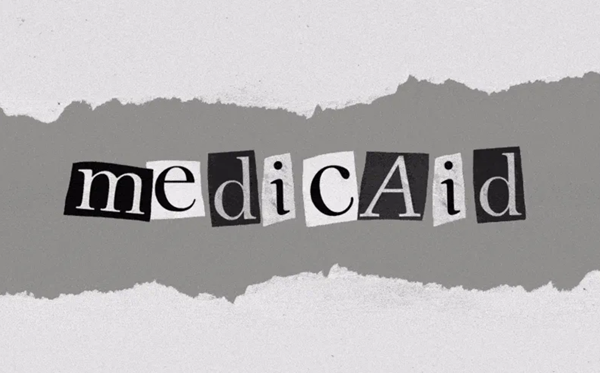The Medicaid You Don’t Know You’re On: How Rebranding Hides Threats to Your Care
By Wendell Potter and Joey Rettino
April 30, 2025
 On Capitol Hill, the clock is ticking. Republicans are racing to finalize numbers for President Trump’s tax plan and domestic policy agenda — and Medicaid, the health care lifeline for more than 70 million Americans, is squarely in their sights. House GOP leaders are facing enormous pressure to find nearly $880 billion in “savings,” and cutting Medicaid benefits is at the center of the debate.
On Capitol Hill, the clock is ticking. Republicans are racing to finalize numbers for President Trump’s tax plan and domestic policy agenda — and Medicaid, the health care lifeline for more than 70 million Americans, is squarely in their sights. House GOP leaders are facing enormous pressure to find nearly $880 billion in “savings,” and cutting Medicaid benefits is at the center of the debate.
But here’s the kicker: millions of Americans who rely on Medicaid may have no idea their health care is at risk.
That’s because, in state after state, Medicaid has been rebranded under names that hide the program’s true identity. In Tennessee, it’s “TennCare.” In Oklahoma, it’s “SoonerCare.” In California, it’s “Medi-Cal.” In Washington, it’s “Apple Health.” Many of these programs are run by private insurance companies like UnitedHealth Group, Centene or Blue Cross Blue Shield — meaning patients might carry a card from a big insurer without ever seeing the word “Medicaid” at all.
The Question No One’s Asking
This begs a fundamental question: If people are enrolled in Medicaid, but don’t know it, how can they be expected to care — or advocate for themselves — when politicians move to gut it?
When your health plan says “Blue Cross” or “UnitedHealthcare” instead of “Medicaid,” it’s easy to miss what’s really happening. Congressional Republicans are edging toward cuts to health coverage that millions of American families depend on — but those millions are left unaware, insulated by branding strategies and private contracts that sever the emotional and political connection between them and the public program they rely on.
Insurers in the Driver’s Seat
This didn’t happen by accident. Over the past two decades, for-profit insurance companies have quietly taken over state Medicaid programs through “managed care” contracts. Today, about three-quarters of all Medicaid enrollees are in these private plans. Companies like UnitedHealth Group, Centene and others are reaping billions of taxpayer dollars each year — while millions of Americans have no idea that Medicaid-designated tax dollars are the engine behind their health care.
This has real consequences. First, it lets politicians slash Medicaid funding without facing the same kind of public backlash they would if more people knew their health care was on the chopping block. Second, it shields insurers from public scrutiny, even as they profit handsomely off programs meant for low-income families, seniors and people with disabilities.
A Dangerous Disconnect
According to Harvard health economist Dr. Ben Sommers, nearly 6 million people with Medicaid coverage don’t even realize they have it. During the pandemic, that number ballooned to 18 million. The confusion is not just limited to patients: even policymakers struggle – like now-HHS Secretary Robert F. Kennedy Jr. does.
If lawmakers find it challenging to understand, what chance does the average American have?
And that’s the danger. If you don’t realize your health insurance is Medicaid, you might think that when Congress talks about cutting Medicaid, they’re talking about cutting somebody else’s coverage, not your own.
Here is a list of the state’s Medicaid programs and what they’re called:
Alabama: Alabama Medicaid (no rebrand)
Alaska: DenaliCare (formerly Alaska Medicaid)
Arizona: Arizona Health Care Cost Containment System (AHCCCS)
Arkansas: Arkansas Medicaid (no rebrand; “Arkansas Works” was used for expansion but is no longer active)
California: Medi-Cal (distinct state branding)
Colorado: Health First Colorado (distinct state branding)
Connecticut: HUSKY Health (HUSKY A, B, C, and D are Medicaid/CHIP programs)
Delaware: Delaware Medicaid (no rebrand)
Florida: Florida Medicaid (no major rebrand, but the program, administered by private insurers, is called the “Florida Medicaid Managed Medical Assistance Program”)
Georgia: Georgia Medicaid…
